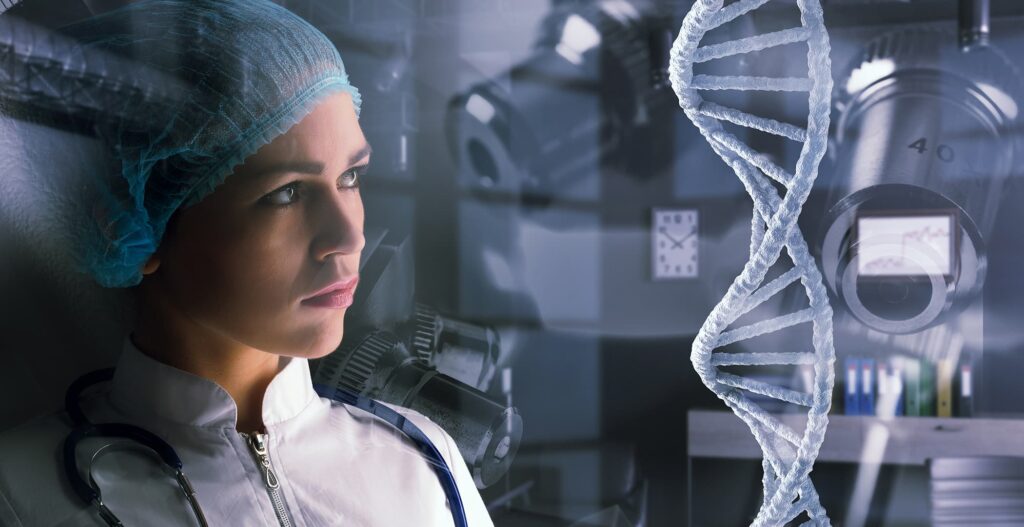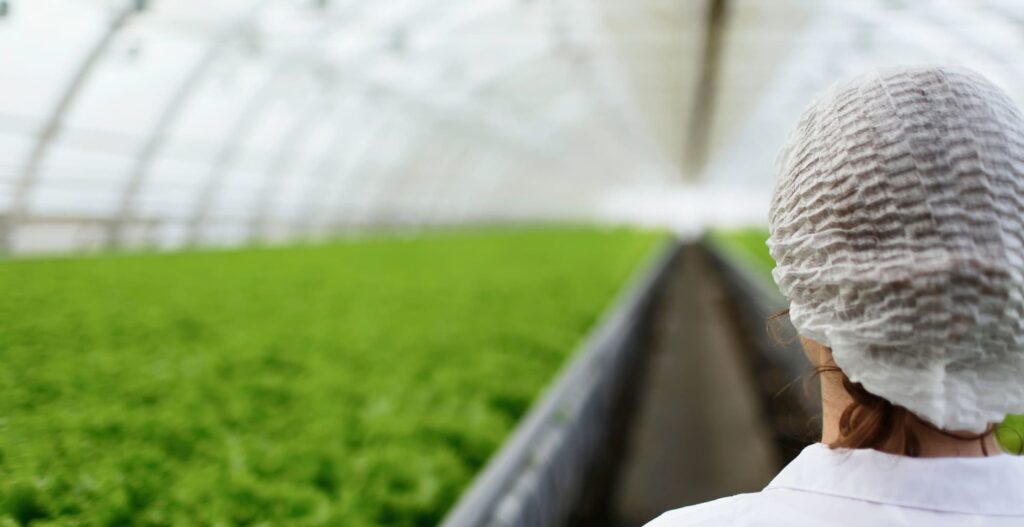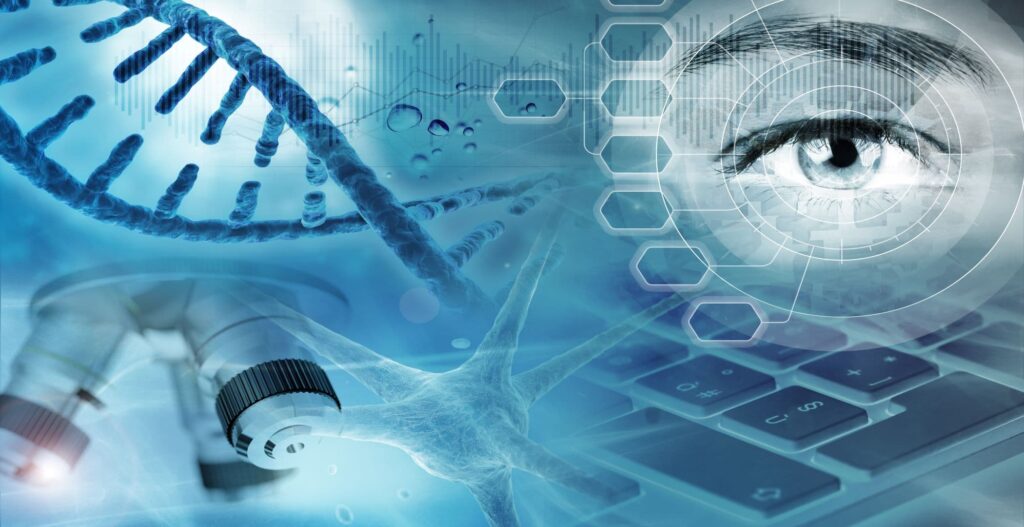
I am often asked which purpose Life Science has for our company. Where do you want to go? And what exactly does Life Science mean for Yokogawa? Which pillars does the Life Innovation Business unit consist of? First of all, let me quote the Yokogawa philosophy:
“As a company, our goal is to contribute to society through broad-ranging activities in the areas of measurement, control, and information. Individually, we aim to combine good citizenship with the courage to innovate.”
What is Life Science?
The term “life science” or “life sciences” is used to describe a number of sciences that focus on living organisms and life processes. Examples of living organisms are microorganisms, plants, animals, and human beings. Life sciences are biology, zoology, botany, medicine, neuroscience, and many more.
SDGs and Life Science
The Sustainable Development Goals (SDGs) of the United Nations address the global challenges that today’s society has to face. We’ve incorporated the resolution of global issues into the focus point of our business activities. With pride, I can say that Yokogawa Electric Corporation has been selected for the first time as a component of the Dow Jones Sustainability Indices (DJSI) World Index in 2020. The DJSI is one of the world’s most renowned environmental, social, and governance (ESG) investment indices. Yokogawa has also been included in the Dow Jones Sustainability Asia Pacific Index for the fourth consecutive year.
I personally think that combining high economic profitability and sustainability do not contradict each other, for example, have a look at Tesla. Also, other renowned companies like Coca-Cola are now experimenting with more sustainable products, like bottles made of paper instead of plastic. Always challenge yourself: How can you make a high-quality product more sustainable?
The “Statement on Yokogawa’s Aspiration for Sustainability” was announced in 2017.
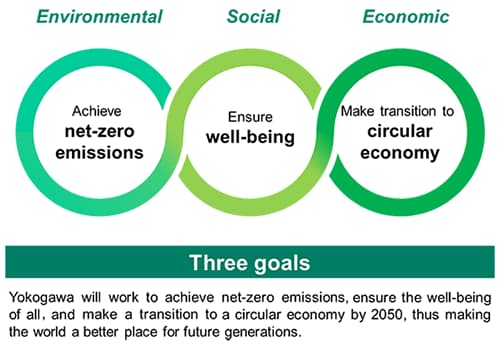
As you can see in the picture above, the three goals are
- Net-zero emissions
- Well-being
- Circular economy
Life Science belongs to the second goal “well-being”. We support people’s health and prosperous lives at safe and comfortable workplaces. Life science is one of the focus areas within the Life Innovation Business. In Europe, it’s mainly focused on High Content Analysis (HCA), Confocal Spinning Units (CSU), and on Single-Cell Analysis. Typical application areas are drug discovery or gene editing.
Other emphases for LIB are on pharmaceutical and food & beverage manufacturing business solutions.
Life Science as a lifesaver
Our Transformation 2020 mid-term business plan (“TF2020”) was launched in 2017. One mentioned transformation is the creation of new businesses and transformation of existing business models achieving both efficiency and sustainability.
We want to resolve important social issues by developing new businesses. This is the reason for focusing on the Life Innovation Business. Imagine which positive impact Life Science has on people’s life: Life Science such as drug discovery or cardiology supports and saves the lives of human beings.
What is the current status of ensuring well-being?
We expanded and enhanced partnerships helping our life innovation business to improve the overall efficiency of the pharmaceutical and food industries’ value chains. For Example, we joined a partnership with InSphero, a Swiss company that specializes in 3D in vitro technologies for drug discovery and safety. Another example of partnership is with AlgaEnergy, a Spanish biotechnology company specializing in the production and commercial applications of microalgae.
In this VUCA world, businesses are continually changing. We are supporting our customers to resolve issues they face during these changes.
Through confocal microscopes, cell image analysis technology, and other technologies that support drug discovery, the safe development and production of pharmaceutical products is possible.
Use-Cases of Life Science Products
After explaining our vision of Life Science, let me show you some practical examples. I will briefly showcase our product launch in 2021, the use of our Confocal Scanner Unit on the ISS, and how we support developing drugs for the treatment of COVID-19.
Innovation in Single-Cell Analysis
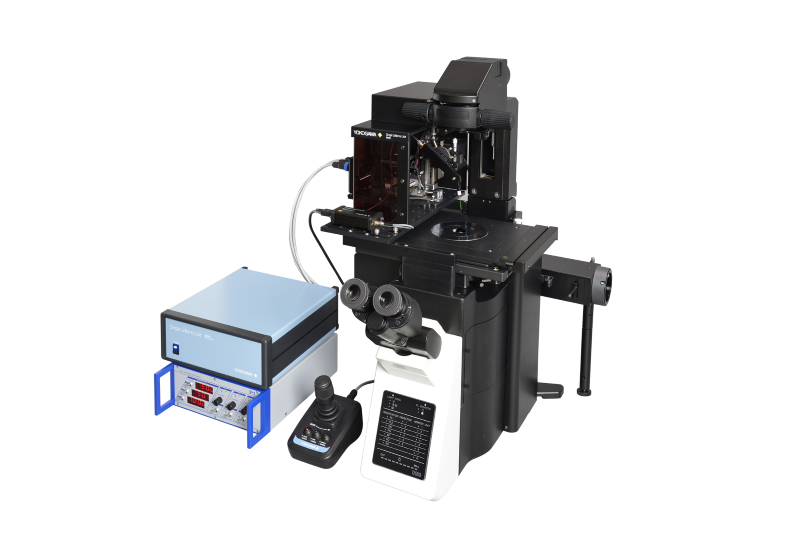
One of our upcoming product highlights in 2021 is the Single-Cell Analyzer (SU10). Research at the single-cell level is getting more and more attention in cutting-edge medical treatment and drug discovery research. It establishes research and medical treatment of diseases like cancer or Parkinson’s.
Where do you use single-cell analysis? Application basic research on cancer primarily involves genetic analysis. You can conduct genetic analysis by extracting the internal constituents of a particular/single cell while observing living cells through a confocal scanner that can obtain high-resolution images. As a result, you will be able to associate the cell morphology information and position information with genetic analysis results. Nanopipette technology enables the injection of genes, drugs, genome-editing tools, etc. directly into specific locations on a cell-by-cell basis.
What makes our nanopipette technology so outstanding? It has an extremely small impact on cells. Ultra-thin glass tubes, with a tip of several tens of nanometers in diameter, are used. With this high-precision equipment, it’s the perfect solution for research using living-cells. Cell detection and injection can be automated which enables the researcher to save time.
Confocal Scanner Unit on the International Space Station (ISS)
We don’t only provide products for use on earth, but also for use in space. The confocal space microscope system COSMIC equipped with Yokogawa’s confocal scanner unit “CSU-W1,” has arrived at the Japanese Experiment Module “Kibo” of the International Space Station (ISS). CSU-W1 combined with a microscope enables real-time observation of the movement of proteins and physiological responses within living cells. It will be used to analyze the gravity response of 3D cell structures, creating 3D organs and living cells in space. Experiments in a microgravity environment at an altitude of approx. 400km above the ground are possible with COSMIC and CSU-W1. For basic life science and cell therapy, their impact looks promising. The space experiments started in autumn 2020.
Developing drugs for treating COVID-19
We are providing services to our customers’ production facilities and plants over multiple decades. Because of well-planned business continuity plans, covering all possible risks including pandemics, we did not face this pandemic unprepared.
So even amid the COVID-19 pandemic, we could provide services to our customers consistently. I strongly believe that we will suppress the COVID-19 pandemic through the acceleration of remote operations and contributions to medical institutions.
Research institutes around the world were struggling and still are to promptly develop a drug to treat COVID-19. Our Confocal Quantitative Image Cytometer CellVoyager CQ1 can support them. Its confocal scanner technology is used in drug repositioning. This means that an existing drug is diverted for the treatment of diseases other than those for which the drug was originally intended. The CellVoyager CQ1 is also utilized for the research on novel coronavirus-infected cells.
Research institutes at the University of Michigan (U.S.), the University of Bristol (U.K.), the Charité University Medicine Berlin (Germany), the University of Helsinki (Finland), and others are currently doing research using our CellVoyager CQ1. This could hopefully shorten the development period by utilizing existing drugs—whose safety, side effects, etc. have already been verified in clinical trials—in the treatment of COVID-19. Further, by analyzing the infection process in detail, it could support in discovering substances that could be applied to the new drug development.
Our Life Science Vision for the Future
We will continue to seek innovative products and solutions in the Life Science field. In the future, we plan to extend our business in the area of biopharmaceuticals (medicines produced by cells) and regenerative medicine (using cells).
Our historical background is industrial automation. So we believe that our proven applications will improve the productivity of innovative biopharmaceuticals. Our Yokogawa measurement, control, and information technologies for cell research and development will be a strong pacemaker. One of our strongest skills is that we are able to manage information across the entire value chain. With this strength, we will be able to generate improvements in quality and efficiency.
It is my firm conviction that our solutions and services will fasten the speed in providing advanced drug and medical treatments to more people.
Researchers will be able to focus on the insightful interpretation of data and advancing life science to ensure well-being for all mankind.
